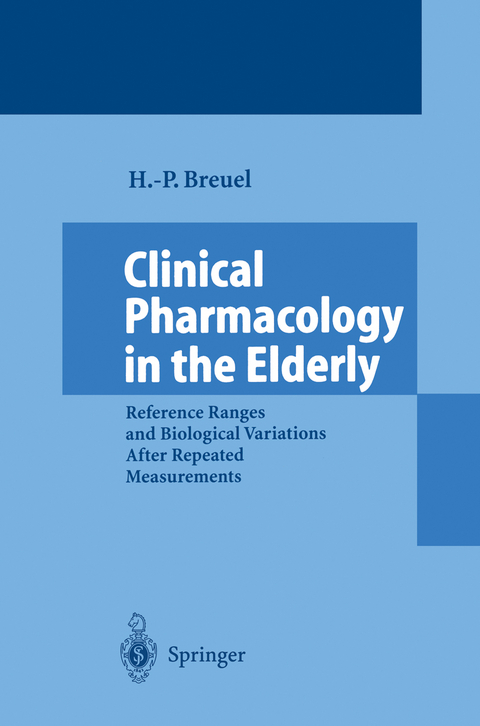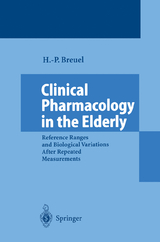Clinical Pharmacology in the Elderly
Springer Berlin (Verlag)
978-3-540-59495-6 (ISBN)
1 Introduction.- 2 Theories of Aging.- 3 Changes in Body Functions, Pharmacokinetics, and Receptor Sensitivity with Age.- 3.1 Changes in Central Nervous System.- 3.2 Cardiovascular and Pulmonary Changes.- 3.3 Changes in Clinical Chemistry and Hematology.- 3.4 Changes in Pharmacokinetics.- 3.5 Changes in Receptor Sensitivity.- 4 Practical Aspects in Performing Clinical Trials in Elderly Subjects.- 4.1 Recruitment of Subjects.- 4.2 Performance of the Study.- 4.3 Safety Aspects.- 4.4 Sample Size.- 4.5 Compliance of Subjects with Medication and Study Regulations.- 5 Experimental Findings in Elderly Subjects.- 5.1 Method.- 5.2 Experimental Data.- 5.3 Consequences from Experimental Data in Healthy Subjects.- 6 Statistical Details.- 6.1 Blood Pressure.- 6.2 Ambulatory Blood Pressure Monitoring.- 6.3 ECG Times.- 6.4 Ambulatory ECG Monitoring.- 6.5 Spirometry (FEV1).- 6.6 Clinical Chemistry.- 6.7 Hematology.- References.
| Erscheint lt. Verlag | 1.12.1995 |
|---|---|
| Mitarbeit |
Assistent: P.R. Heine, J. Horkulak, G. Weyer |
| Vorwort | J. Kuhlmann |
| Zusatzinfo | VIII, 182 p. 2 illus. |
| Verlagsort | Berlin |
| Sprache | englisch |
| Maße | 155 x 235 mm |
| Gewicht | 400 g |
| Themenwelt | Medizin / Pharmazie ► Medizinische Fachgebiete ► Geriatrie |
| Medizin / Pharmazie ► Medizinische Fachgebiete ► Pharmakologie / Pharmakotherapie | |
| Medizin / Pharmazie ► Pharmazie | |
| Schlagworte | Absorption • Chemistry • clinical trial • elderly patients • electrocardiogram (ECG) • Kinetics • Metabolism • Pharmacokinetics • pharmacology |
| ISBN-10 | 3-540-59495-7 / 3540594957 |
| ISBN-13 | 978-3-540-59495-6 / 9783540594956 |
| Zustand | Neuware |
| Haben Sie eine Frage zum Produkt? |
aus dem Bereich




